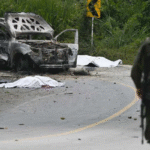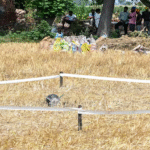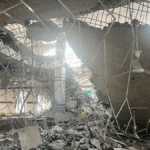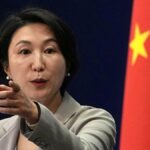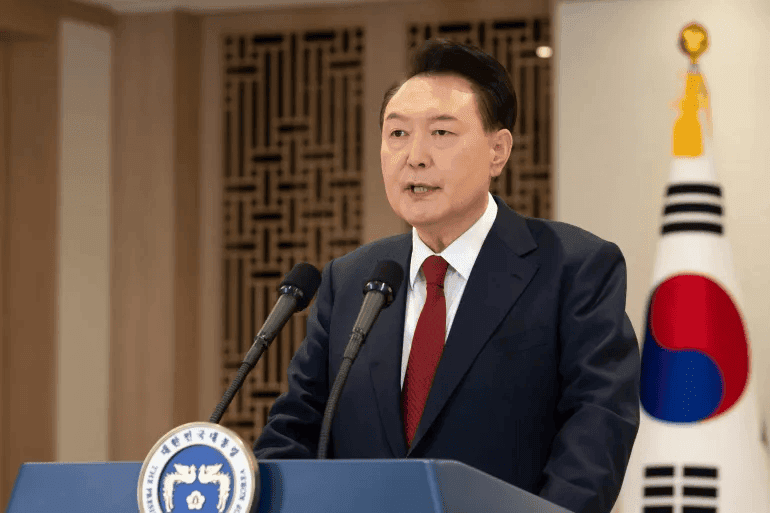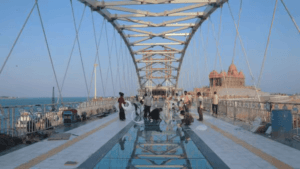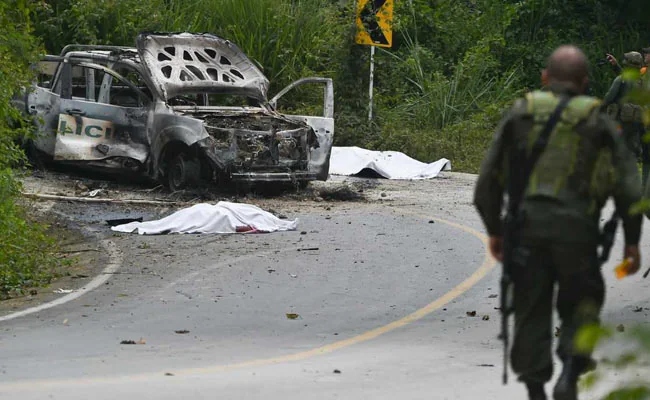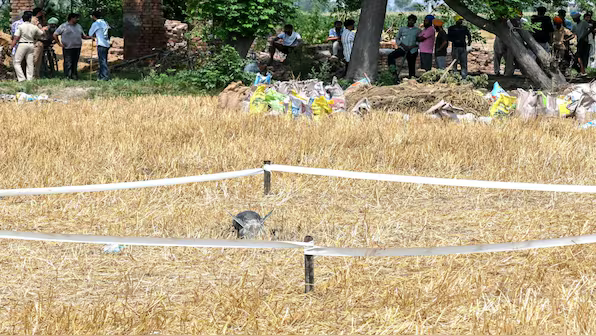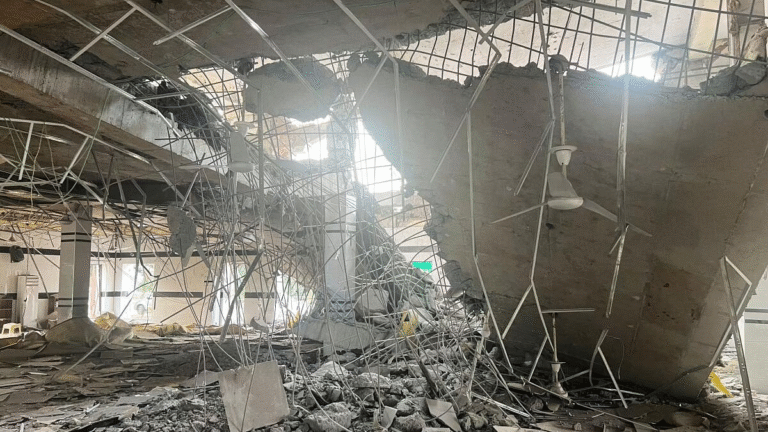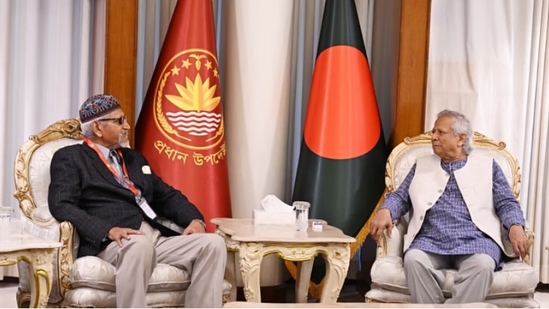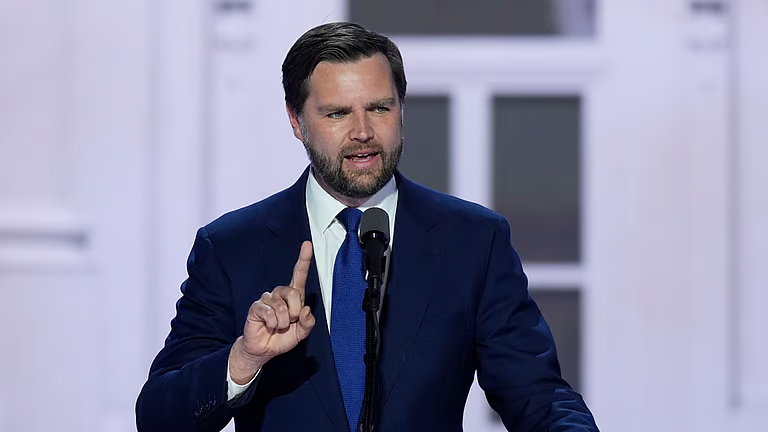In an unprecedented move, a South Korean court has approved the arrest of President Yoon Suk Yeol in connection with an ongoing investigation into his controversial declaration of martial law earlier this month. This marks the first time in the nation’s history that a sitting president faces arrest while in office, plunging the country into a constitutional crisis. The Seoul Western District Court issued the warrant on December 31, granting investigators a 48-hour window to detain and question the president.
The Context Behind the Arrest Warrant
President Yoon’s legal troubles stem from his brief declaration of martial law on December 3, 2024. While the decision was rescinded within 24 hours, it sparked widespread outrage and allegations of abuse of power. Critics accused Yoon of attempting to bypass the National Assembly to address growing civil unrest over economic and political issues. Opposition parties swiftly moved to impeach him, resulting in his temporary suspension from presidential duties pending a trial at the Constitutional Court.
The arrest warrant was requested by South Korea’s Corruption Investigation Office for High-Ranking Officials (CIO), citing allegations of abuse of authority and inciting an insurrection. The court’s decision to approve the warrant was influenced by Yoon’s repeated failure to comply with three summonses issued over the past two weeks.
A Nation in Political Turmoil
The declaration of martial law and subsequent arrest warrant have thrown South Korea’s political landscape into disarray. With Yoon suspended, Prime Minister Han Duck-soo initially assumed the role of acting president. However, Han himself was impeached by the opposition-dominated National Assembly shortly afterward, leaving Finance Minister Choi Sang-mok to take over as acting president.
The dual impeachment and the arrest warrant have created a power vacuum, with many questioning the stability of South Korea’s democratic institutions. The situation has also reignited debates about the limits of presidential power and the mechanisms in place to hold the nation’s highest office accountable.
Legal and Political Ramifications
Under South Korea’s constitution, sitting presidents enjoy immunity from prosecution for most crimes, except those involving insurrection or treason. This constitutional provision allowed the court to approve Yoon’s arrest warrant. However, the president’s legal team has strongly opposed the decision, labeling the warrant as “illegal and invalid.”
“The Corruption Investigation Office has overstepped its authority,” said a spokesperson for Yoon’s legal team. “We intend to challenge the legality of this warrant in court.” Meanwhile, the Presidential Security Service has stated that it will ensure due process is followed during the execution of the warrant.
Public Reaction and Protests
The arrest warrant has elicited mixed reactions from the public. Supporters of President Yoon have decried the move as a politically motivated attack, organizing rallies to protest the court’s decision. On the other hand, opposition groups and critics of Yoon view the arrest as a necessary step to uphold the rule of law and protect South Korea’s democratic principles.
“No one is above the law, not even the president,” said Kim Ji-hyun, a political analyst based in Seoul. “This case will set a precedent for how South Korea handles potential abuses of power at the highest levels of government.”
Next Steps in the Investigation
The Corruption Investigation Office now has 48 hours to detain and interrogate President Yoon. Investigators are expected to focus on the circumstances surrounding the martial law declaration, including whether it was a calculated move to suppress dissent or a response to genuine security concerns.
Meanwhile, the Constitutional Court continues to deliberate on Yoon’s impeachment. A ruling is anticipated in the coming months, which could either uphold the National Assembly’s decision to impeach Yoon or reinstate him as president. The court’s verdict will have far-reaching implications for South Korea’s political future.
Broader Implications for Democracy
The unfolding crisis has highlighted the challenges faced by South Korea’s relatively young democracy, established in the late 20th century after decades of authoritarian rule. The dual impeachments and the arrest warrant against a sitting president have exposed vulnerabilities in the country’s political system.
However, some experts argue that these events also demonstrate the resilience of South Korea’s democratic institutions. “The fact that a sitting president can be held accountable through legal and constitutional means is a testament to the strength of South Korea’s democracy,” said Professor Lee Min-ho, a political science scholar at Yonsei University.
Conclusion
As South Korea grapples with this unprecedented political crisis, all eyes are on the Corruption Investigation Office and the Constitutional Court. The outcome of President Yoon’s case will not only determine his political future but also shape the trajectory of South Korea’s democratic development. With just 48 hours to act, the nation stands at a critical juncture, navigating uncharted territory in its quest for accountability and justice.
Also Read-
2. WhatsApp to Stop Support on 30 Android Devices Starting January 1, 2025

